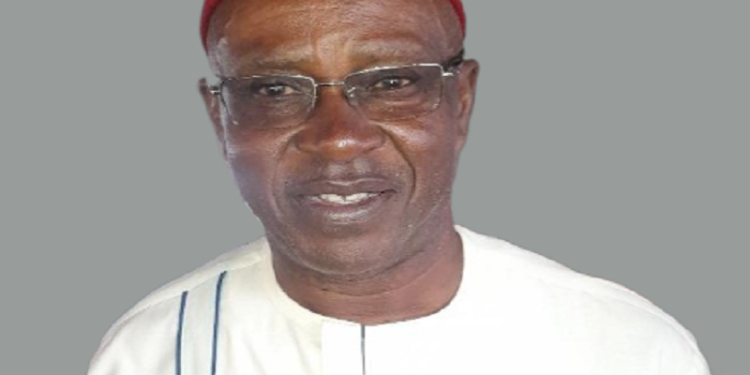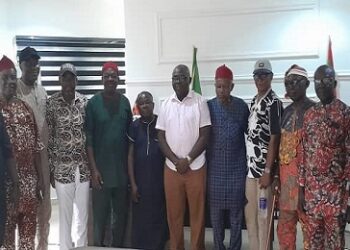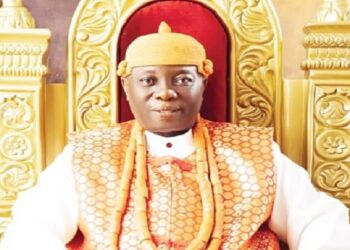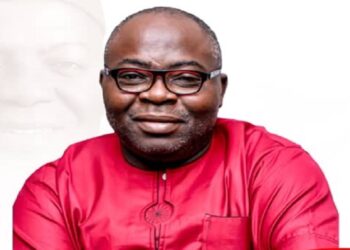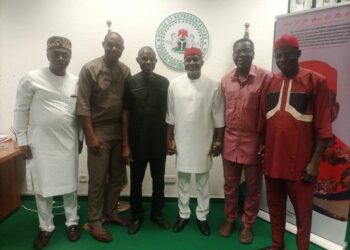The people of Isuochi in the Umunneochi Local Government Area of Abia State have rejected the proposed Orlu State, saying that it does not support its creation or any attempt to cede any portion of its territory to another state.
The position of the people was contained in a statement jointly signed by Engr. Ochiabuto Orji and Comrade Victor Nmaezuoke, the President General and Secretary of Isuochi Development Union (IDU), respectively.
Recall that recently, a bill seeking the creation of an Orlu State for the Southeast to bring the zone at par with other geo-political zones, passed the first reading on the floor of the Federal House of Representatives.
Though the statement described the bill sponsored by Hon. Ugochinyere Ikeagwuonu as a welcome development for the people of the Southeast, as it would bring about justice, equity, and fair play in the distribution of national resources, the people frowned at the move to balkanize Isuochi town by the creation of the proposed Orlu State.
“Isuochi will not cede any portion of its territory to another state, as the bill is set to balkanise Isuochi by taking away Umuaku, one of the nine towns that make up Isuochi, to the proposed Orlu State, and leaving the other eight towns of Isuochi in Abia State; nor do we want to be a part of Orlu State,” the people said in the statement.
The people insisted that the issue of creating an additional state for the Southeast had been settled by delegates from the Southeast at the Presidents Obasanjo and Jonathan National Confabs, stating that at no point at any of the Confabs was Orlu State mentioned.
“Thankfully, the issue of creating an additional state for the Southeast had been settled by delegates from the Southeast at the Presidents Obasanjo and Jonathan National Confabs.
“The delegates from the Southeast had settled for the creation of an Equity or Etiti State to be carved out as follows: Awgu and Oji Rivers in Enugu State, Ohozara and Ivo in Ebonyi State, Isuikwuato and Umunneochi in Abia State, Okigwe and Onuimo in Imo State, and Orumba North and Orumba South in Anambra State.
“At the Confabs, there was no mention of an Orlu State, and the next viable alternatives were an Adada State for the Nsukka people of Enugu State or an Aba State for the Ukwa and Ngwa people of Abia State,” Orji and Nmaezuoke said in the statement.
The community said it firmly aligns with the Confabs recommendation for creating an Etiti State and unequivocally rejects the creation of an Orlu State as proposed by the bill’s sponsors.
“The said Orlu State detracts markedly from the historic aspiration of the good people of the Southeast for the creation of a parity state to be called Etiti State, which would be carved out from local governments donated by the five states of the Southeast, with Isuochi in Umunneochi as the state capital, being that Umunneochi is where the five states of the Southeast meet,” they further averred.
They noted that the centrality of Isuochi is paramount in its consideration as the capital of Etiti State for administrative convenience and should be supported by all the people of the Southeast.
The people expressed deep concern that the current attempt to hurriedly foist an untenable Orlu State on the good people of the Southeast would bastardize the recommendations of the two well-meaning confabs and cause disaffection among the people of the Southeast instead of soothing frayed nerves.
“We condemn the actions of some political leaders from the Southeast who deviate from the aggregated opinion of the delegates to the previous confabs and pursue a self-serving agenda without considerations and consultations with leaders of the zone.
“We call on well-meaning people of the Southeast, especially our representatives in the National Assembly, the Southeast intelligentsia, political elite, and members of civil society organisations, to urge the National Assembly to expunge the section of the bill that seeks to create an “Orlu State” from the three states of the Southeast and replace it with “Etiti State,” to be carved out from the five states of the Southeast as proposed and agreed by the delegates from the South East in the 2005 and 2014 national conferences,” the people said.


